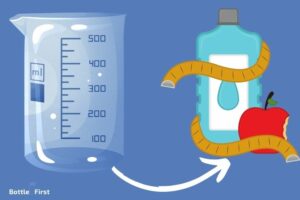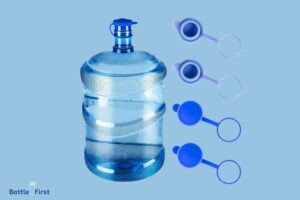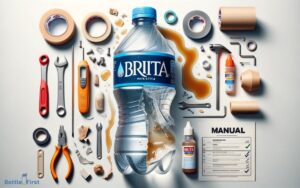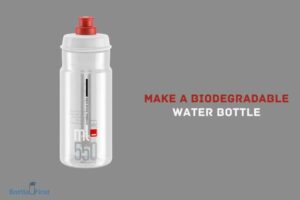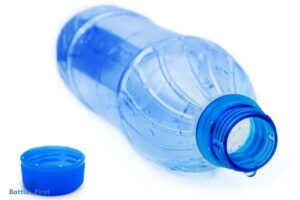Why is My Hamster Chewing Her Water Bottle? Top 5 Reasons!
If your hamster is chewing on her water bottle, it may indicate behavioral or environmental factors that need to be addressed.
This behavior might stem from the natural urge to gnaw due to ever-growing teeth, a lack of stimulation, or a sign that the water bottle is malfunctioning or not suited to your pet’s needs.
Ensuring that your hamster has a proper diet, a correctly functioning water bottle, and ample enrichment can mitigate this issue. Hamsters chew on various objects as part of their instinctual behavior.
The reasons for chewing a water bottle include:
Monitoring and enhancing your hamster’s habitat can prevent unwanted chewing and promote overall well-being.
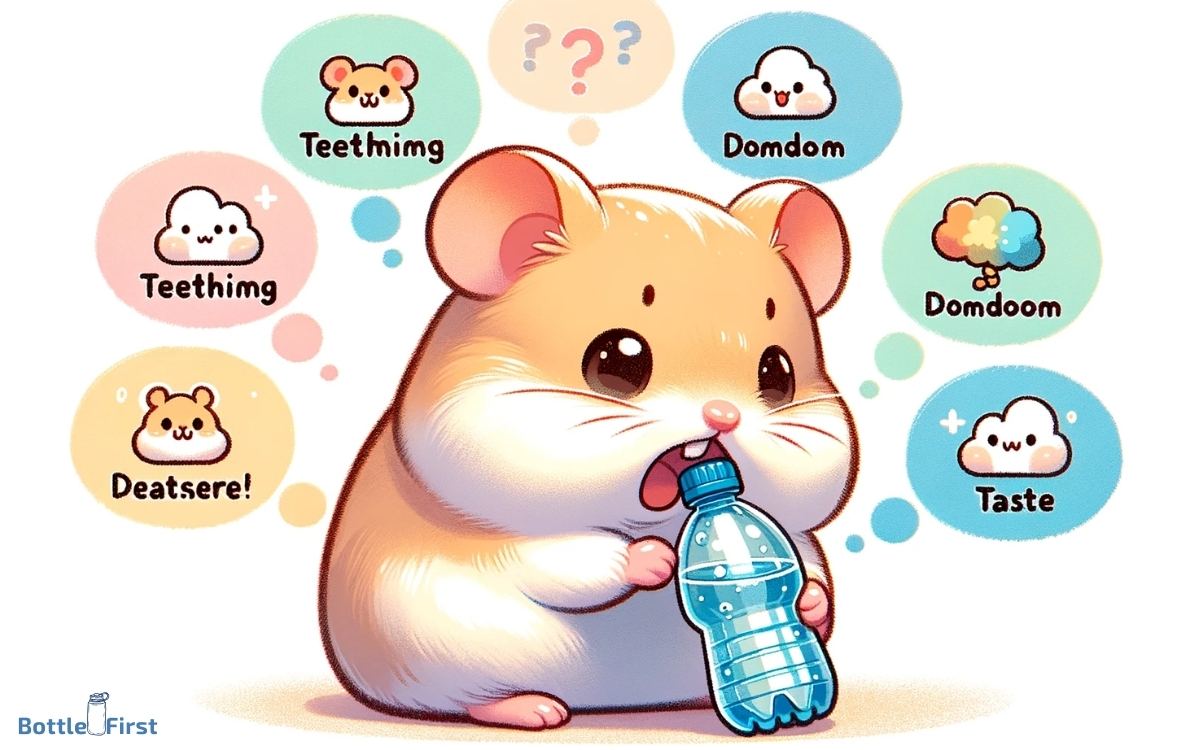
Key Takeaway
Dental Health
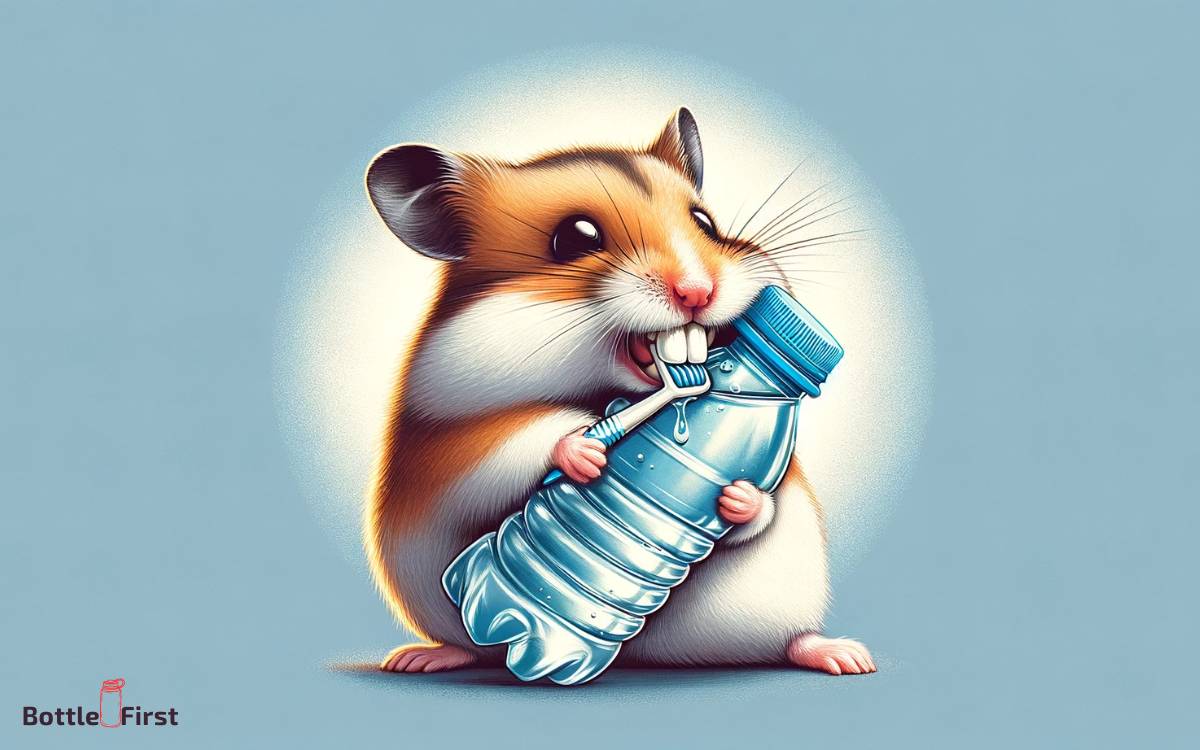
If your hamster is constantly chewing her water bottle, it may indicate potential dental health issues that need to be addressed.
Just like humans, hamsters can suffer from dental problems, such as overgrown teeth, which can cause discomfort and lead to chewing on hard objects like water bottles.
To ensure your furry friend’s dental health, provide chew toys and wooden blocks to help wear down her teeth. Additionally, a diet rich in hay and hard foods can also assist in keeping her teeth at an appropriate length.
Regular check-ups with a veterinarian who specializes in small animals are crucial for identifying and addressing any dental issues early on.
By taking proactive steps to care for your hamster’s dental health, you can help her feel comfortable and happy in her home.
Boredom and Stress
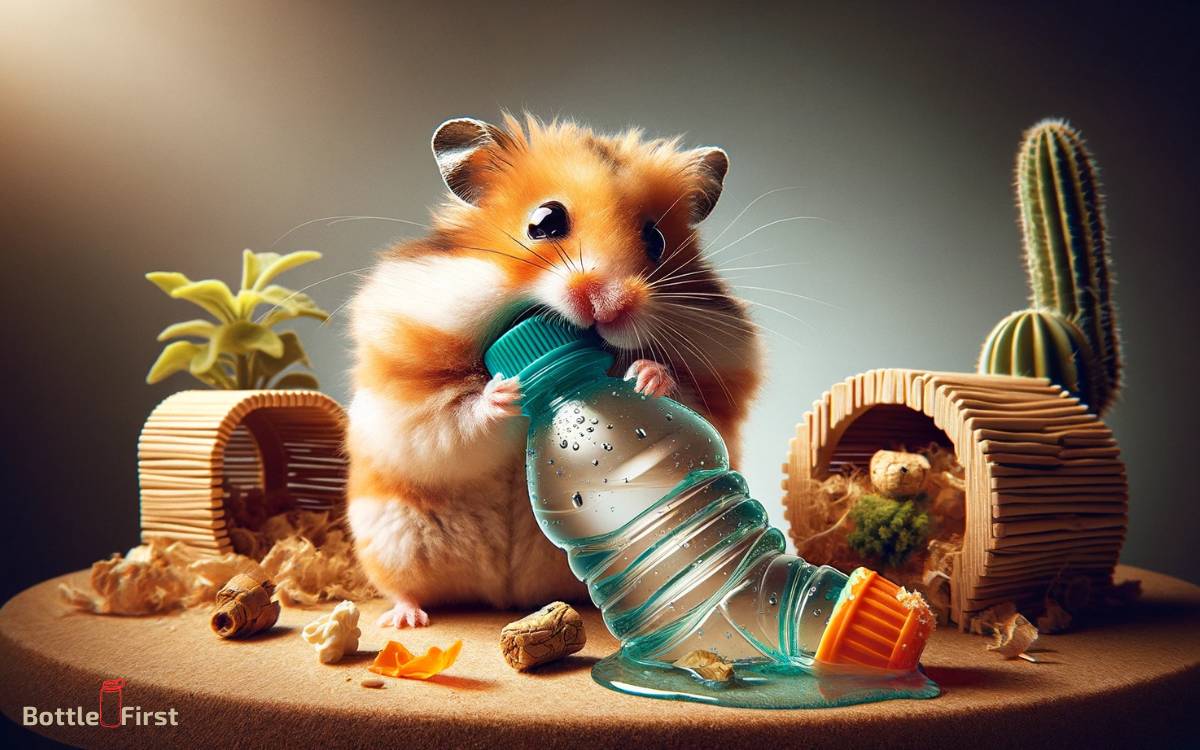
Your hamster may be chewing her water bottle out of boredom or stress, seeking stimulation or relief from anxiety. Hamsters are active creatures and need mental and physical stimulation to stay happy and healthy.
If they’re confined to a small and unstimulating environment, they can become bored and stressed, leading to behaviors like excessive chewing.
To address this, make sure your hamster has plenty of toys and items to explore in her enclosure. Consider adding a running wheel, tunnels, and chew toys to keep her engaged.
Additionally, ensure that her living space is quiet and free from sudden loud noises that could startle or stress her out.
Spending quality time with your hamster through gentle handling and interaction can also provide the mental stimulation and comfort she needs.
Inadequate Water Supply
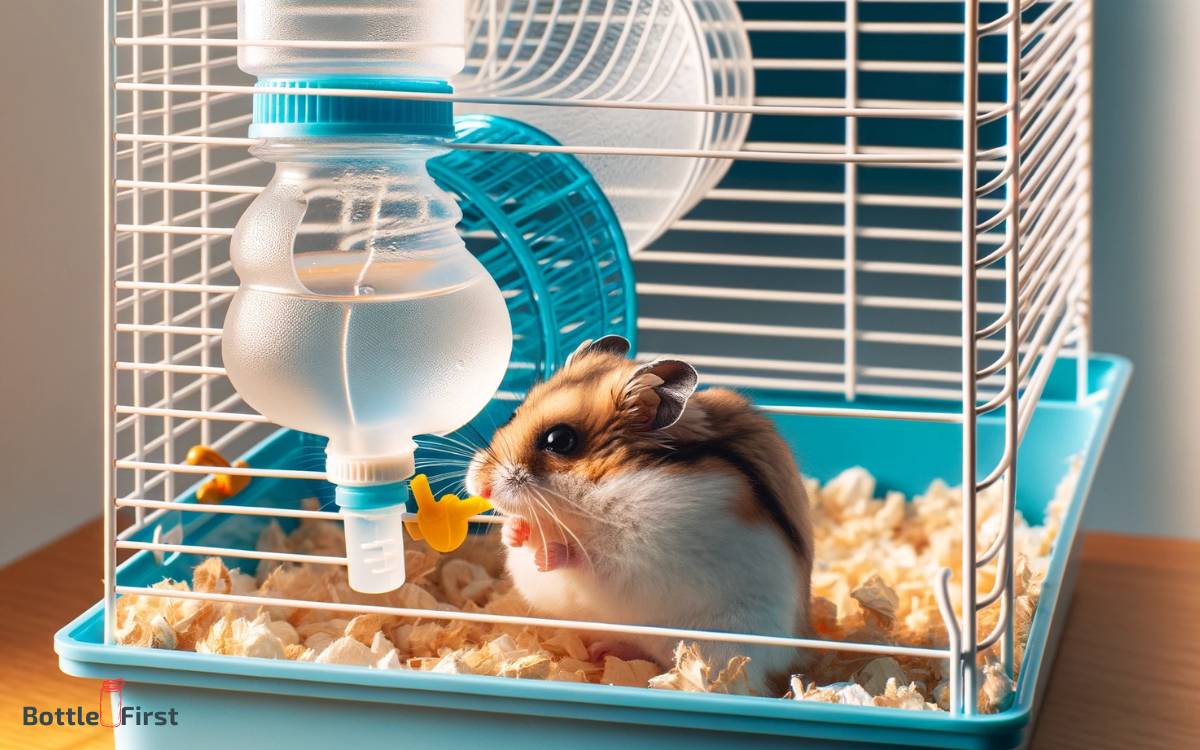
To prevent your hamster from chewing her water bottle due to inadequate water supply, ensuring a constant and easily accessible source of water is essential. Hamsters need a sufficient water supply to stay healthy and hydrated.
Check the water bottle or dispenser regularly to ensure it isn’t leaking or malfunctioning. Clean the bottle and the spout daily to prevent blockages that could restrict water flow.
Additionally, consider providing a water bowl as a backup to ensure your hamster always has access to water. Monitor your hamster’s water intake to ensure she’s drinking enough.
Incorrect Water Bottle Type
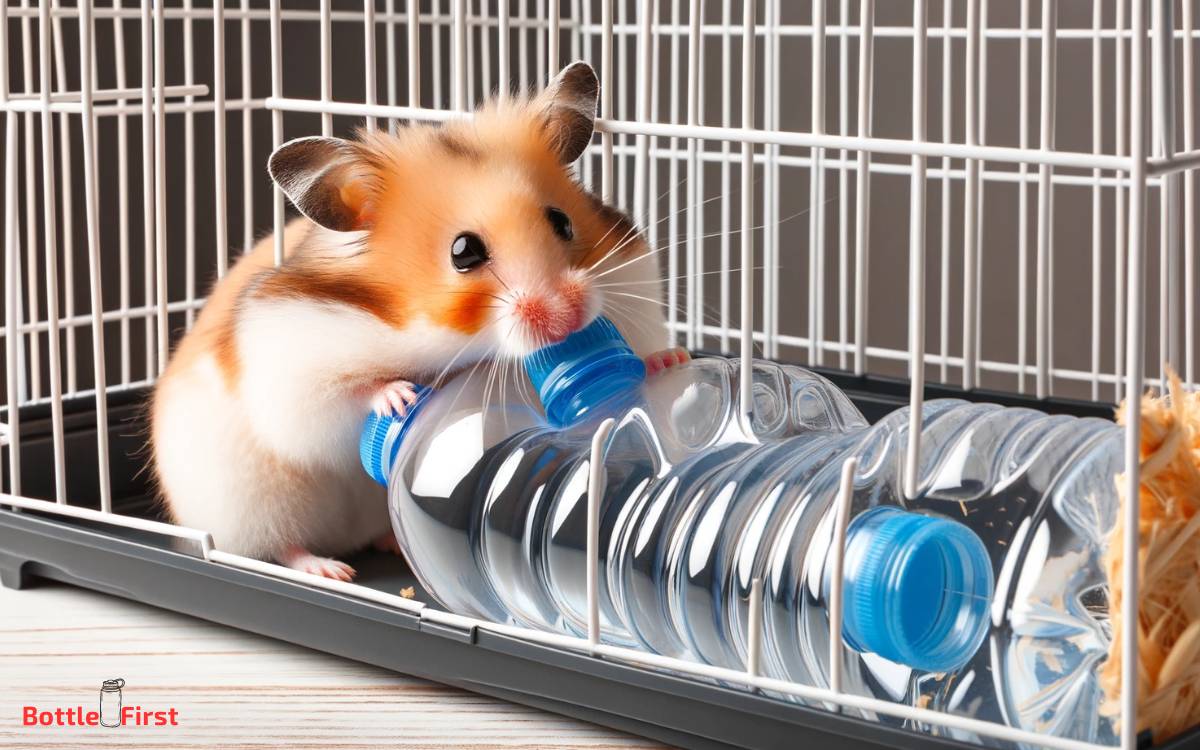
Are you using the correct type of water bottle for your hamster, and is it securely attached to the cage?
Hamsters need water bottles specifically designed for small animals, with a sipper tube that allows them to drink without spilling. If the water bottle is too big or the sipper tube is too long, your hamster may struggle to use it comfortably.
Additionally, if the water bottle isn’t securely attached to the cage, it can swing and make noise, causing your hamster to chew on it out of curiosity or frustration.
Ensure that the water bottle is the right size for your hamster, has a properly functioning sipper tube, and is securely attached to the cage to prevent chewing behavior caused by an incorrect water bottle type.
Territorial Behavior
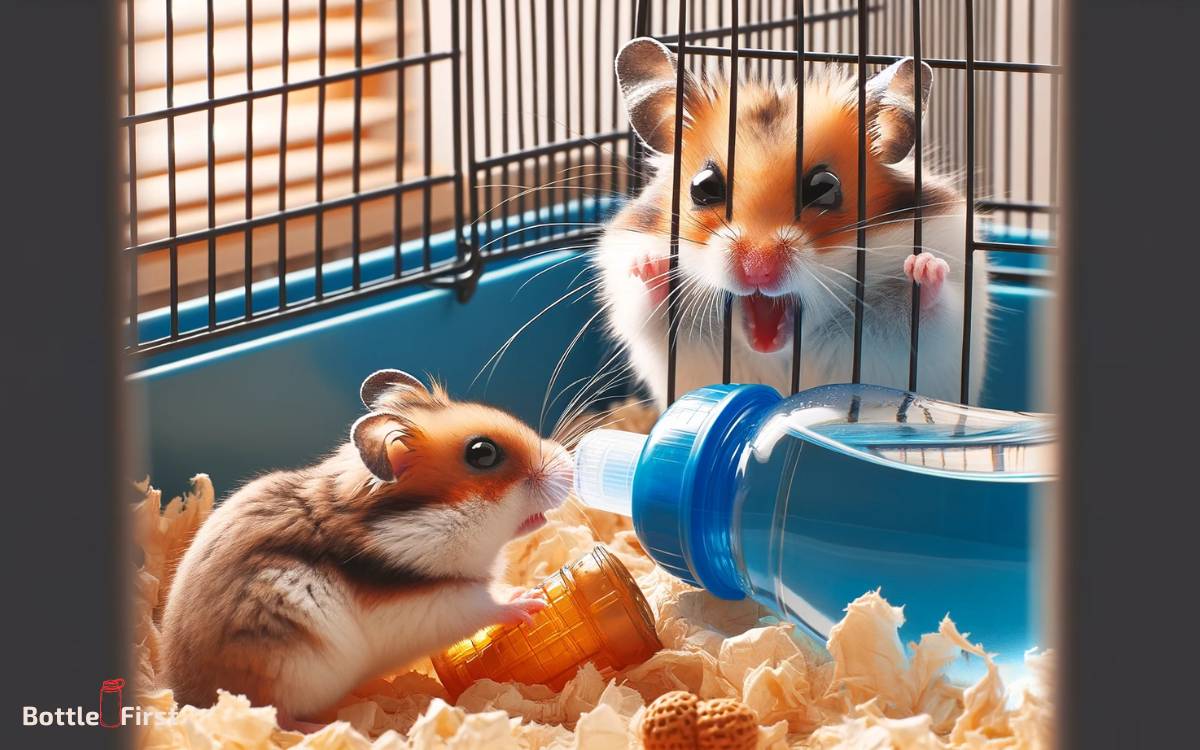
Hey there! If you’ve noticed your hamster chewing on her water bottle, it could be a sign of territorial behavior.
This might be due to stress-induced chewing, as well as her natural marking instincts. Consider the size of her cage and how it might be impacting her territorial tendencies.
Stress-Induced Chewing
Is your hamster exhibiting stress-induced chewing behavior, such as gnawing on her water bottle, due to territorial concerns?
Here’s why this behavior might be happening:
- Territorial Instincts: Hamsters are naturally territorial animals, and they may chew on their water bottle or other objects to mark their territory within their cage.
- Scent Marking: Chewing allows hamsters to leave their scent on objects, signaling to other hamsters that the area is their territory.
- Stress Relief: When feeling stressed or anxious, hamsters may engage in chewing behavior to comfort themselves and establish a sense of security within their environment.
- Environmental Factors: Changes in the hamster’s environment, such as a new cage layout or the introduction of a new pet, can trigger territorial instincts and lead to increased chewing activity.
Understanding your hamster’s natural instincts and providing a secure, enriched environment can help alleviate stress-induced chewing behavior.
Natural Marking Behavior
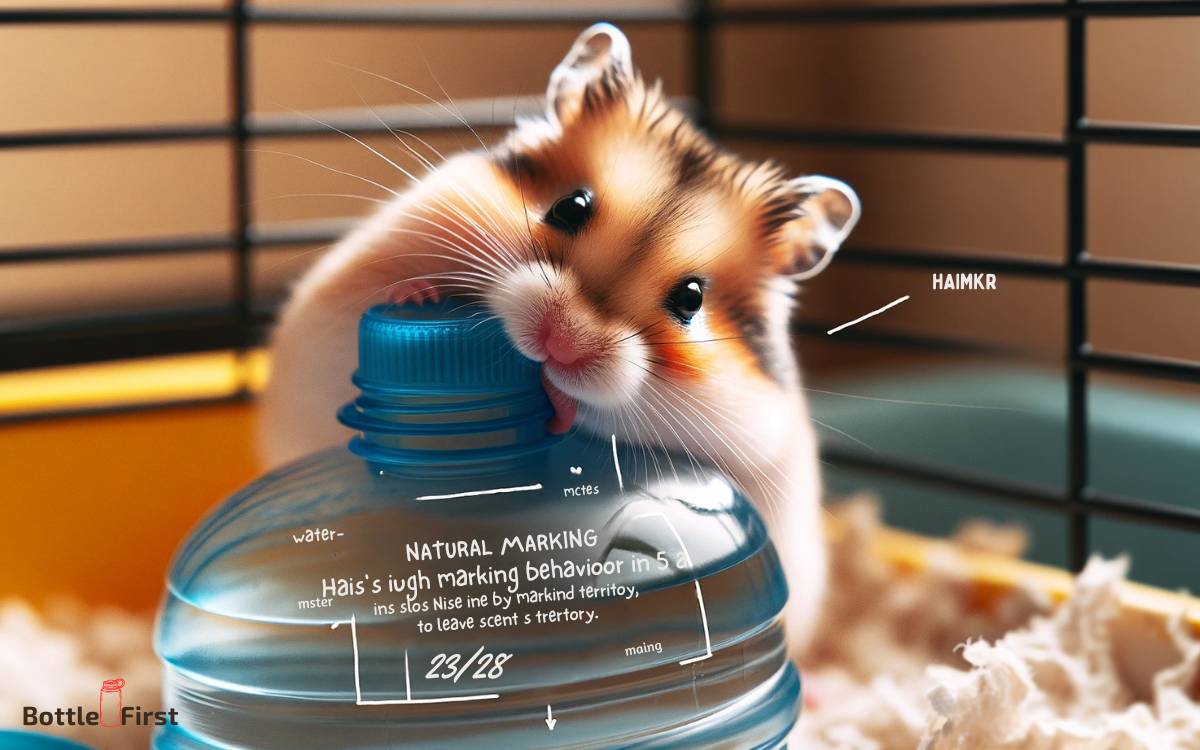
If your hamster is exhibiting natural marking behavior, such as chewing on her water bottle, it’s important to understand her territorial instincts and how they influence this behavior.
Hamsters are naturally territorial animals, and chewing on objects within their environment is a way for them to mark their territory with scent glands located in their cheeks. This behavior helps them feel secure and in control of their space.
To support your hamster’s need for territorial marking, provide her with appropriate items like chew toys and wooden hideouts.
Additionally, ensuring that her cage is spacious enough for her to establish distinct areas for eating, sleeping, and playing will help satisfy her territorial instincts.
By understanding and accommodating your hamster’s natural marking behavior, you can create a harmonious environment that fulfills her need for belonging and security.
Cage Size Considerations
To ensure your hamster’s well-being and satisfaction with her territorial instincts, provide a cage that’s spacious enough for her to establish distinct areas for eating, sleeping, and playing.
This will help her feel secure and content in her environment, reducing the likelihood of stress-related behaviors like chewing on her water bottle.
When considering cage size, keep in mind:
- Minimum space: Aim for at least 450 square inches of floor space for your hamster’s cage. Providing ample room allows your hamster to create separate spaces for different activities, mimicking her natural behavior in the wild.
- Multi-level options: Look for cages with multiple levels or add-ons to maximize vertical space. Hamsters enjoy climbing and exploring, so a multi-level cage provides opportunities for exercise and mental stimulation.
- Enrichment items: Include tunnels, hides, and toys to create an engaging and dynamic living environment. These items support your hamster’s need for mental stimulation and help her establish a sense of belonging in her cage.
Need for Enrichment
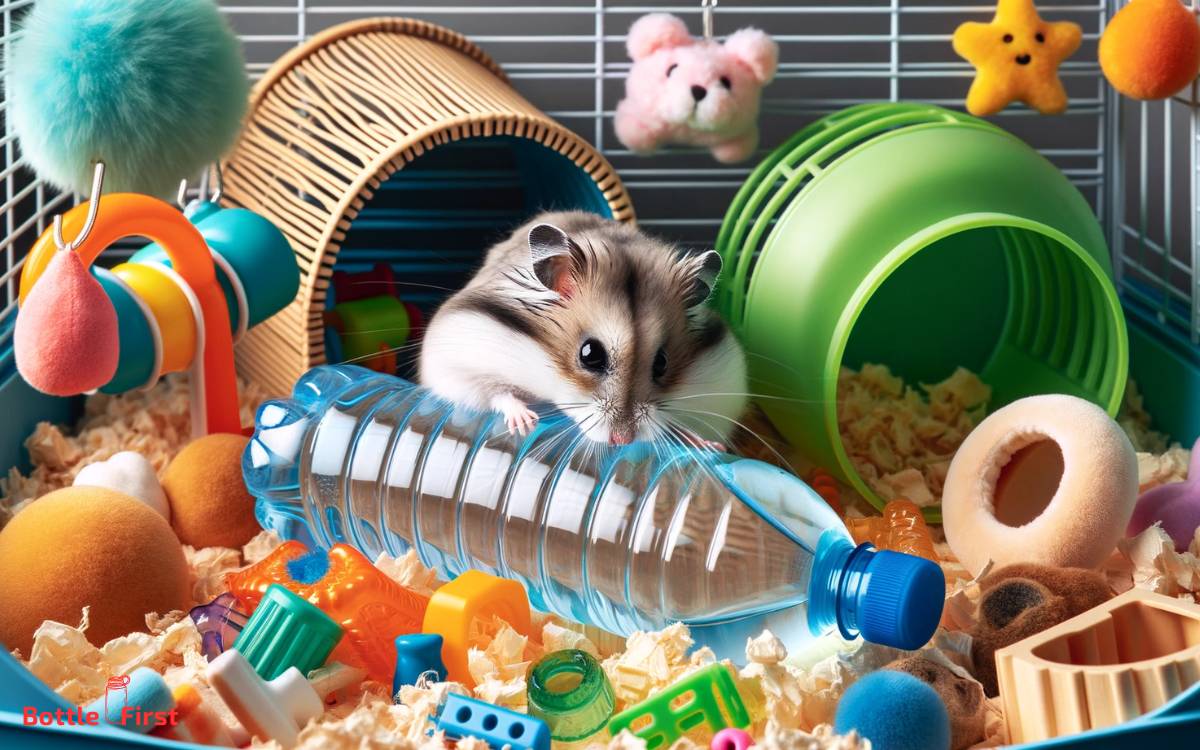
When your hamster exhibits excessive chewing on her water bottle, it may indicate a need for increased environmental enrichment. Hamsters are active and curious creatures that thrive in stimulating environments.
Providing enrichment activities can help prevent boredom and reduce unwanted behaviors such as chewing on the water bottle. Consider adding items like chew toys, tunnels, and running wheels to your hamster’s habitat.
These additions can keep your hamster mentally and physically engaged, fulfilling her natural instincts and preventing her from seeking alternative ways to entertain herself.
By creating a enriching environment, you are ensuring that your hamster feels content and happy in her home.
| Enrichment Ideas | Description | Emotional Impact |
|---|---|---|
| Chew Toys | Provide safe items for your hamster to gnaw on, reducing stress and promoting dental health. | Contentment |
| Tunnels | Create a sense of security and privacy, allowing your hamster to exhibit natural behaviors. | Security |
| Running Wheels | Encourage physical activity and mental stimulation, promoting overall well-being. | Happiness |
Medical Issues
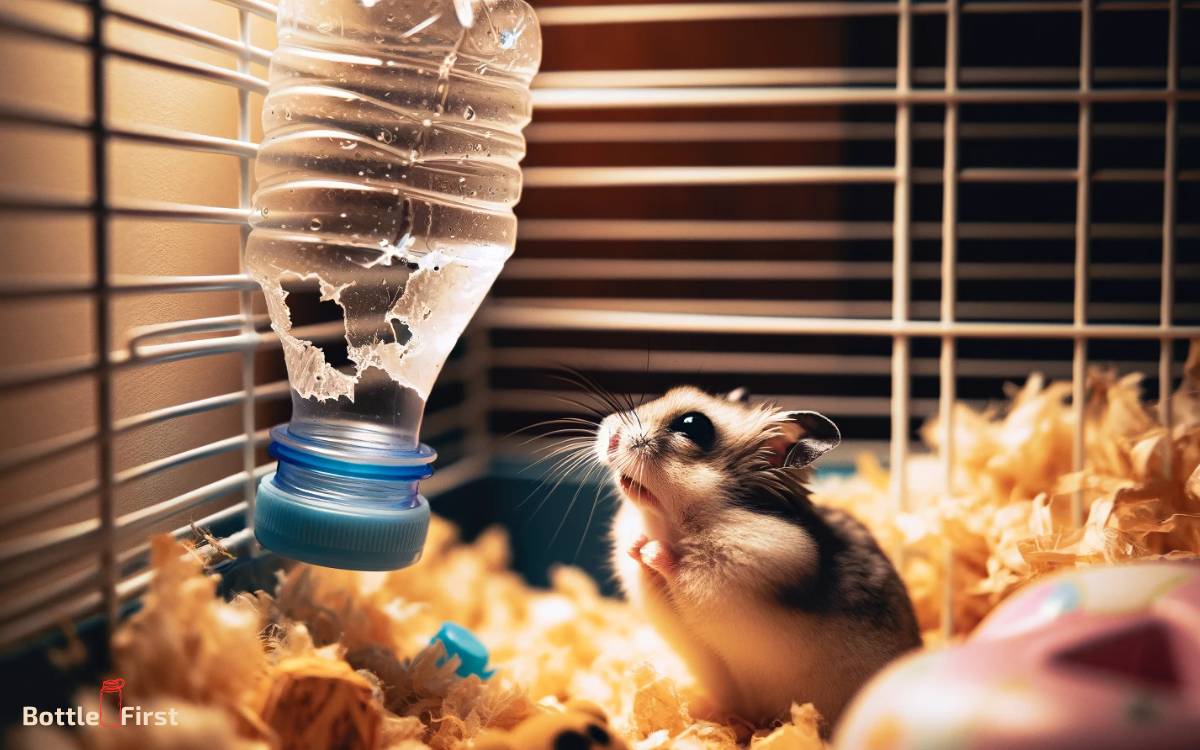
If your hamster is constantly chewing on her water bottle, it could be a sign of dental problems. The act of chewing on hard surfaces can lead to overgrowth of the teeth, causing discomfort and a need for constant chewing.
Additionally, behavioral stress can also lead to excessive chewing, so it’s important to consider any changes in your hamster’s environment or routine.
Dental Problems and Chewing
Are you concerned about your hamster’s constant chewing on her water bottle due to possible dental problems and related medical issues?
Dental problems in hamsters can lead to excessive chewing as they try to relieve the discomfort in their mouths.
Here’s what you should consider:
- Dental Overgrowth: Hamsters’ teeth continuously grow, and if not worn down properly, it can lead to overgrowth, causing pain and difficulty in eating.
- Symptoms: Look out for drooling, weight loss, and a decrease in appetite.
- Malocclusion: This occurs when a hamster’s teeth don’t align properly, leading to sharp points or hooks that can injure the mouth.
- Treatment: Regular veterinary check-ups and providing chew toys can help prevent and manage dental issues.
- Infections: Dental problems can also lead to infections, causing further discomfort for your hamster.
- Prevention: Ensure your hamster’s cage is clean and provide a balanced diet to support dental health.
Behavioral Stress and Chewing
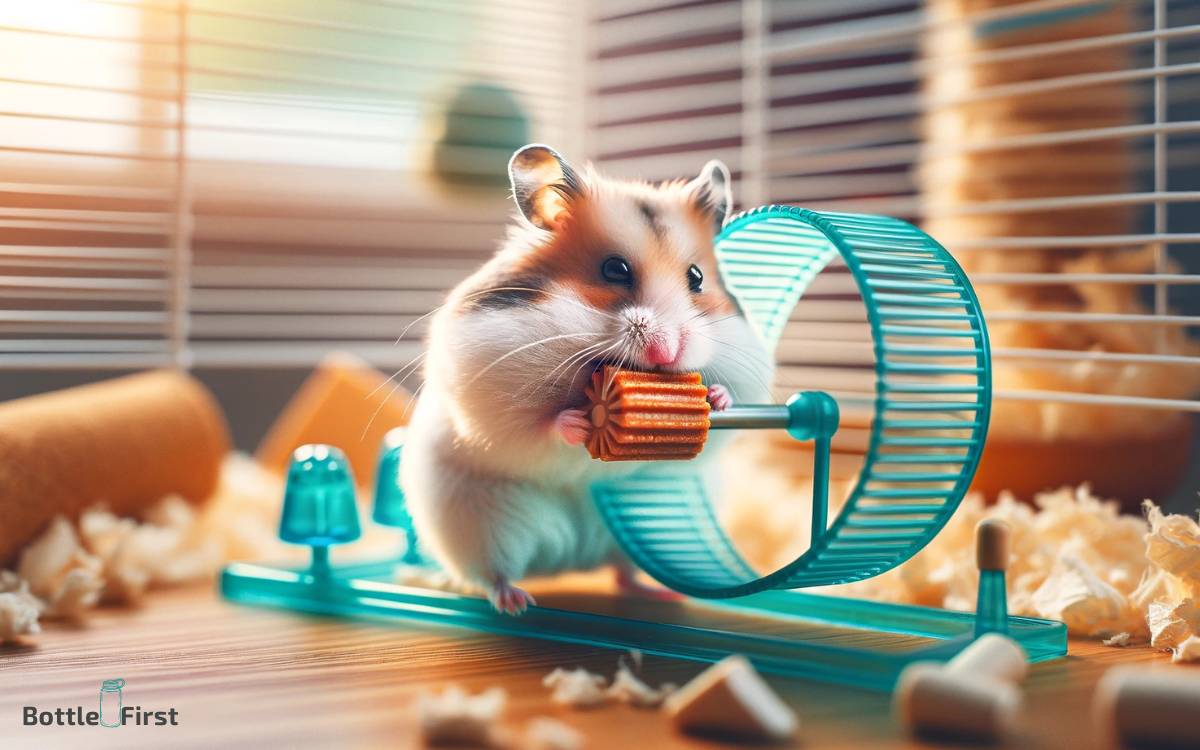
Why is your hamster incessantly chewing on her water bottle, and could it be a sign of underlying medical issues related to behavioral stress?
When a hamster exhibits excessive chewing behavior, it may indicate underlying stress or anxiety-related medical issues. Stress can lead to compulsive chewing as a way for hamsters to alleviate their anxiety.
If your hamster is displaying this behavior, it’s important to create a calm and enriching environment to reduce stress.
Providing mental stimulation, such as toys and tunnels, can help alleviate behavioral stress. However, if the chewing behavior persists, it’s crucial to consult with a veterinarian to rule out any potential medical issues.
Addressing the root cause of your hamster’s stress is essential for her overall well-being and happiness.
Conclusion
So, if you notice your hamster chewing on her water bottle, it’s important to consider her dental health, boredom, and stress.
Just like a dog chewing on a bone, your hamster may be trying to alleviate discomfort or relieve stress.
Make sure she has plenty of enrichment and a proper water supply to keep her happy and healthy.
If you’re still concerned, consult with a vet to rule out any medical issues.

